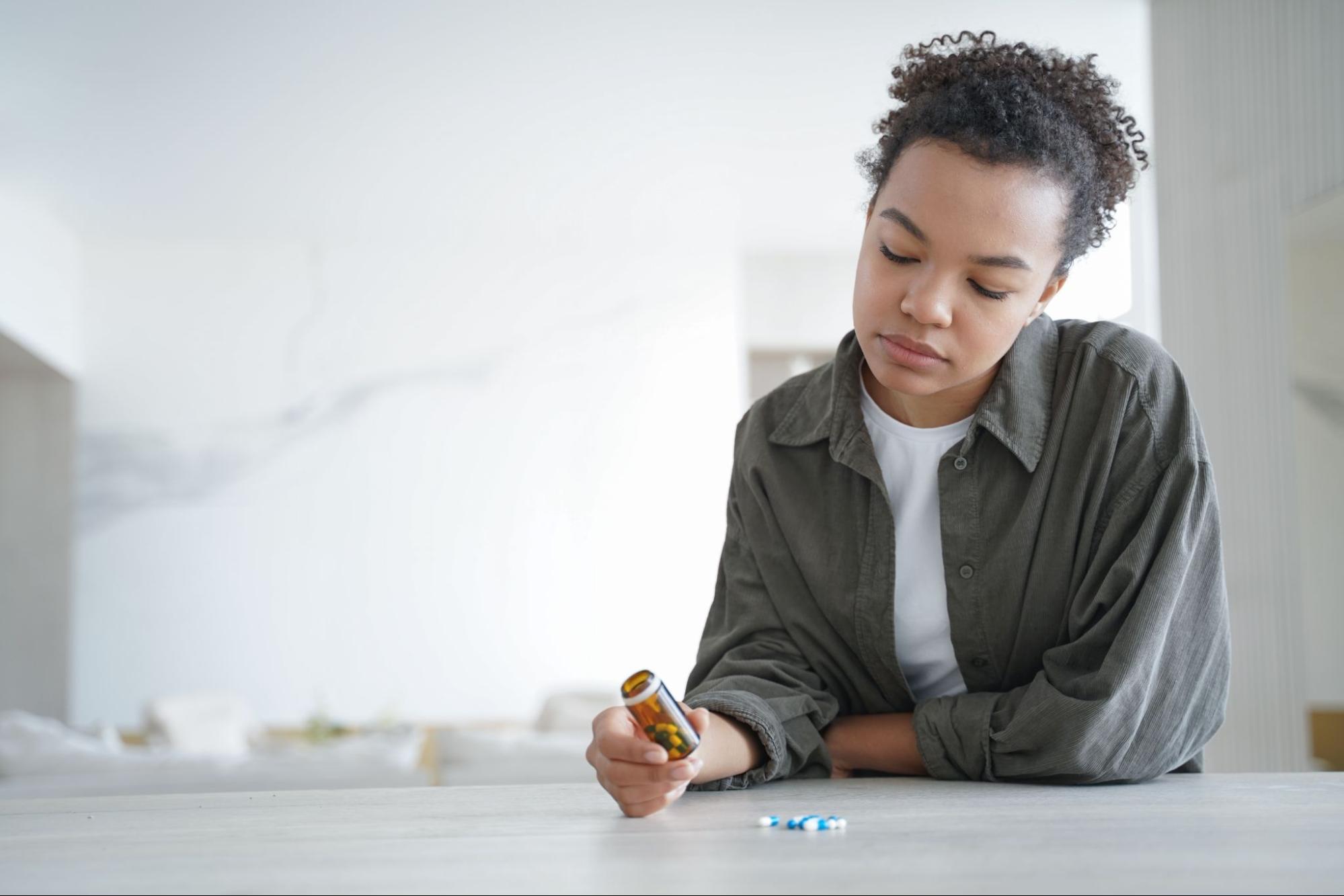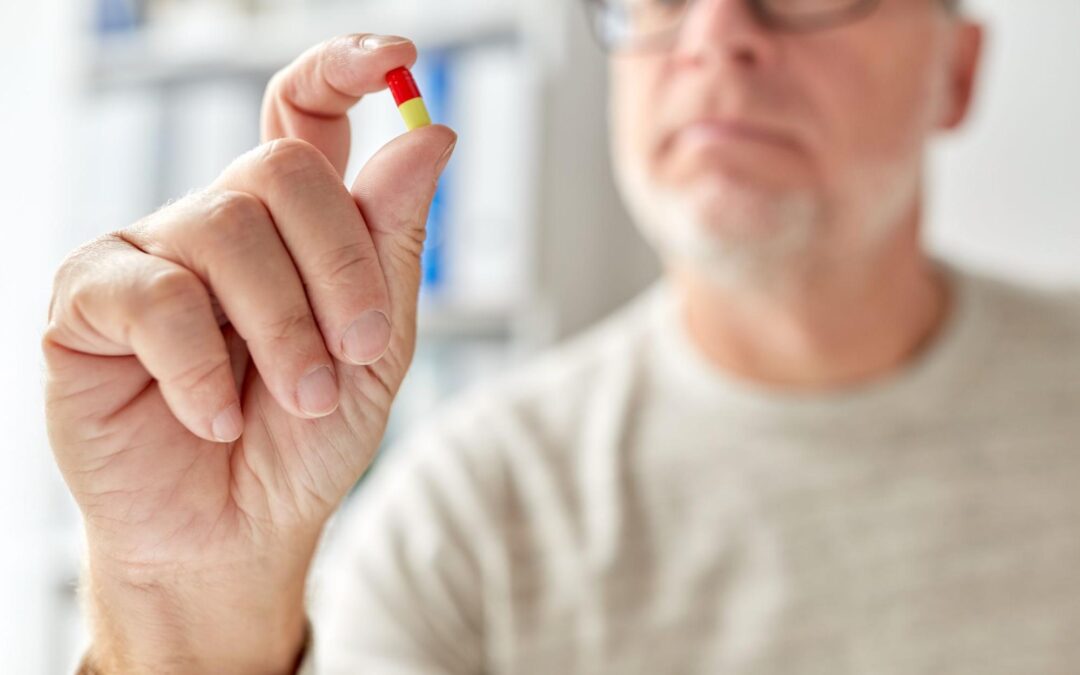Gabapentin for anxiety is a topic gaining attention, especially as healthcare providers explore different options for managing anxiety symptoms. While not initially designed for this purpose, its use has grown, including among individuals navigating severe anxiety caused by addiction withdrawal. But this off-label application brings questions: Is gabapentin a controlled substance? Is gabapentin a narcotic? Understanding the facts about gabapentin, including its potential for dependence and withdrawal, is vital, particularly for those navigating recovery from substance use disorders. At CenterPointe Recovery, we believe in providing clear information to help you make informed decisions about your mental health and recovery journey.
What is Gabapentin?
Gabapentin, often known by brand names like Neurontin or Gralise, belongs to a class of medications called anticonvulsants or antiepileptics. Its primary, FDA-approved uses are for treating certain types of seizures (epilepsy) and managing nerve pain, specifically postherpetic neuralgia (pain following shingles) and restless legs syndrome. It works by altering electrical activity in the brain and influencing the activity of neurotransmitters, chemicals that nerve cells use to communicate with each other. While its exact mechanism isn’t fully understood, it’s thought to calm overactive nerve cells.
Understanding Gabapentin for Anxiety: The Off-Label Use
Using gabapentin for anxiety is considered an “off-label” use. This means the FDA hasn’t specifically approved it for treating anxiety disorders, but doctors may prescribe it based on clinical experience and emerging research suggesting potential benefits. Why might it help? Gabapentin is structurally similar to GABA (gamma-aminobutyric acid), a neurotransmitter known for its calming effects on the central nervous system. While gabapentin treatment doesn’t directly act on GABA receptors like some other anxiety medications (e.g., benzodiazepines), it might influence GABA synthesis or release, or affect voltage-gated calcium channels, ultimately leading to reduced nerve excitability and potentially easing anxiety symptoms.
How Effective is Gabapentin for Anxiety Disorders?
The evidence for gabapentin’s effectiveness in treating anxiety disorders is mixed and still evolving. Some studies and clinical reports suggest it can be helpful for specific conditions like social anxiety disorder and panic disorder. Patients might experience a calming effect or reduced excessive worry. However, large-scale, high-quality randomized controlled trials specifically confirming its broad effectiveness for generalized anxiety disorder or other psychiatric disorders are limited compared to established treatments like selective serotonin reuptake inhibitors (SSRIs) or serotonin-norepinephrine reuptake inhibitors (SNRIs).
Some individuals report significant improvement in their anxiety symptoms while taking gabapentin, finding relief where other medications may have failed or caused intolerable side effects. Others may not experience the same benefit. A healthcare provider will consider a patient’s medical history, the severity of their anxiety, and previous treatment responses before prescribing gabapentin off-label.
Why Prescribe Gabapentin Off-Label?
A doctor might consider prescribing gabapentin for anxiety for several reasons. It might be an option if a patient hasn’t responded well to standard anxiety medications or has experienced significant side effects. For some, gabapentin may have a different side effect profile that is more tolerable. It’s also sometimes used as an adjunctive therapy, meaning it’s added to another existing medication regimen to enhance effectiveness. The decision is always individualized, weighing potential benefits against risks.
Feeling overwhelmed by anxiety while navigating recovery from drug and alcohol dependence? Centerpointe Recovery offers personalized treatment plans. Call us.
Is Gabapentin a Controlled Substance?
This is a common and important question. Federally, in the United States, gabapentin is not classified as a controlled substance by the Drug Enforcement Administration (DEA). Controlled substances are drugs regulated under the Controlled Substances Act due to their potential for abuse and dependence. However, concerns about misuse and diversion have led several individual states to classify gabapentin as a Schedule V controlled substance or to implement prescription drug monitoring programs (PDMPs) to track its dispensing. This state-level action reflects growing awareness that while not federally controlled, gabapentin requires careful monitoring. So, the answer to “is gabapentin a controlled substance?” depends on your location, but vigilance is increasing nationwide.
Is Gabapentin a Narcotic?
No, gabapentin is not a narcotic. The term “narcotic” typically refers to opioid drugs, which are primarily used for pain relief and derived from opium or synthesized to act like it (e.g., morphine, heroin, oxycodone). Narcotics work on opioid receptors in the brain and have a high potential for addiction and respiratory depression. Gabapentin works differently in the central nervous system and is classified as an anticonvulsant. Confusing gabapentin with narcotics is a common misconception, but they are distinct classes of medication with different mechanisms and risk profiles.
Related Post: Understanding Psychological Dependence in Relation To Alcohol & Drug Addiction
Is Gabapentin Addictive?
While not classified federally as a controlled substance and not a narcotic, the question “is gabapentin addictive?” is complex. Gabapentin does not typically produce the intense euphoria associated with drugs like opioids or stimulants when used as prescribed. However, it can be misused, particularly in higher doses or when taken via routes other than prescribed (like snorting), sometimes to enhance the effects of other substances like opioids. This misuse can lead to psychological dependence, where a person feels they need the drug to cope or feel normal.

Physical dependence can also develop, even when taking gabapentin as prescribed by a healthcare provider. Physical dependence means the body has adapted to the presence of the drug, and stopping it abruptly can lead to withdrawal symptoms. This is different from addiction (Substance Use Disorder), which involves compulsive drug-seeking and use despite harmful consequences. While the risk of developing a gabapentin use disorder might be lower than with opioids or benzodiazepines, the potential for misuse and dependence exists, especially for individuals with a history of substance abuse or other mental health conditions.
Related Post: Xanax Withdrawal: Navigating Symptoms and Effects
Recognizing Gabapentin Misuse
According to the NIH, gabapentin can be misused in a variety of ways. Signs that someone might be misusing gabapentin include:
- Taking higher doses than prescribed.
- Taking the medication more frequently than directed.
- Attempting to obtain prescriptions from multiple doctors (“doctor shopping”).
- Using gabapentin to get high or alter mood, often in combination with other substances.
- Experiencing cravings for the drug.
- Continuing use despite negative consequences.
Co-occurring Disorders and Risk
Individuals with a history of alcohol use disorder or other substance use disorders may be at higher risk for misusing gabapentin. It’s crucial for those in recovery or considering treatment to discuss their full medical history with their healthcare provider. At Centerpointe Recovery, we understand the complexities of co-occurring disorders and offer integrated treatment approaches.
Worried about gabapentin use? Talk to our compassionate team at Centerpointe Recovery.
Understanding Gabapentin Withdrawal
If physical dependence has developed, stopping gabapentin suddenly can trigger gabapentin withdrawal. Symptoms can range from mild to severe and often resemble alcohol or benzodiazepine withdrawal.
Common Gabapentin Withdrawal Symptoms
Gabapentin withdrawal symptoms can include:
- Increased anxiety or agitation
- Insomnia or sleep disturbances
- Sweating
- Nausea or stomach discomfort
- Muscle tension or pain
- Headaches
- Fatigue
- Confusion
- In rare, severe cases, seizures (especially if used for epilepsy) or delirium
The onset and duration of gabapentin withdrawal symptoms can vary depending on the dosage, duration of use, and individual factors, but they typically begin within 12 hours to 7 days after the last dose and can last for several days to weeks.
Why Does Withdrawal Occur?
Withdrawal happens because the central nervous system has adapted to the constant presence of gabapentin. When the drug is abruptly removed, the system becomes temporarily dysregulated, leading to the emergence of physical and psychological symptoms as it tries to readjust.
Managing Gabapentin Withdrawal Safely
Abruptly stopping gabapentin, especially at higher doses or after long-term use, is not recommended due to the risk of withdrawal symptoms, including potential seizures. The safest way to discontinue gabapentin is through a gradual dose reduction (tapering) under the supervision of a healthcare provider. A tapering schedule allows the body to adjust slowly, minimizing the severity of withdrawal symptoms. Medical supervision is crucial, especially for individuals with a history of seizures or substance use disorders. Outpatient recovery programs, like those offered at Centerpointe Recovery, can provide the necessary support and monitoring for safe withdrawal management.
Related Post: Opioid Withdrawal Symptoms: What to Expect During Detoxification
Gabapentin in Addiction Recovery Settings
Gabapentin is sometimes used off-label in addiction treatment settings, particularly during detoxification from alcohol or other substances. It may help manage certain withdrawal symptoms like anxiety, insomnia, or cravings. However, its use in this context requires careful consideration due to its own potential for misuse and dependence, especially within a population already vulnerable to substance use disorders. Treatment decisions must be highly individualized, weighing the potential benefits against the risks.
Need support during recovery? Centerpointe Recovery offers comprehensive outpatient programs. Learn more here.
Alternatives for Managing Anxiety
While gabapentin for anxiety might be an option for some, it’s essential to remember that many effective, FDA-approved treatments exist. These include:
- Therapy: Cognitive Behavioral Therapy (CBT), Dialectical Behavior Therapy (DBT), and other forms of psychotherapy are highly effective for various anxiety disorders.
- Medications: SSRIs (e.g., fluoxetine, sertraline) and SNRIs (e.g., venlafaxine, duloxetine) are often considered first-line treatments.
- Other Medications: Buspirone and sometimes benzodiazepines (for short-term use) may be prescribed.
- Lifestyle Changes: Regular exercise, stress management techniques (mindfulness, meditation), adequate sleep, and a healthy diet can significantly impact anxiety levels.
At Centerpointe Recovery, we emphasize a holistic approach, often combining therapy, medication management (when appropriate), and support for healthy lifestyle changes. Explore our treatment options.
Finding Hope and Healing at Centerpointe Recovery
Navigating anxiety, concerns about medication like gabapentin, or the challenges of substance use requires support and expert guidance. If you or a loved one is struggling with moderate or severe anxiety caused by substance use, or managing medications in recovery, you don’t have to face it alone.
CenterPointe Recovery offers compassionate, evidence-based outpatient drug and alcohol treatment in Sarasota and Venice, Florida. We provide individualized care, including therapy, support groups, and help managing co-occurring mental health conditions. Our goal is to empower you on your path to lasting recovery and well-being.
Ready to take the next step? Contact CenterPointe Recovery today for a confidential consultation. Call us at (941) 488-4811 or visit our Contact Us page.
FAQ
Can I drink alcohol while taking gabapentin?
It is generally strongly advised not to drink alcohol while taking gabapentin. Both substances depress the central nervous system. Combining them can increase side effects like dizziness, drowsiness, difficulty concentrating, and impaired coordination. It can also increase the risk of respiratory depression, which can be dangerous.
What are the most common side effects of gabapentin?
Common side effects include dizziness, drowsiness, fatigue, unsteadiness (ataxia), and swelling in the hands or feet (peripheral edema). Not everyone experiences these, and they may lessen over time. Discuss any persistent or bothersome side effects with your healthcare provider.
How long does gabapentin take to work for anxiety symptoms?
The timeframe can vary. Some people might notice effects within a week or two, while for others, it might take several weeks to experience the full benefit for anxiety symptoms. Consistent use as prescribed is important.
Does gabapentin cause weight gain?
Weight gain is a possible side effect associated with gabapentin use for some individuals. If this is a concern, discuss it with your doctor, who can monitor your weight and discuss management strategies or alternative treatments if necessary.

